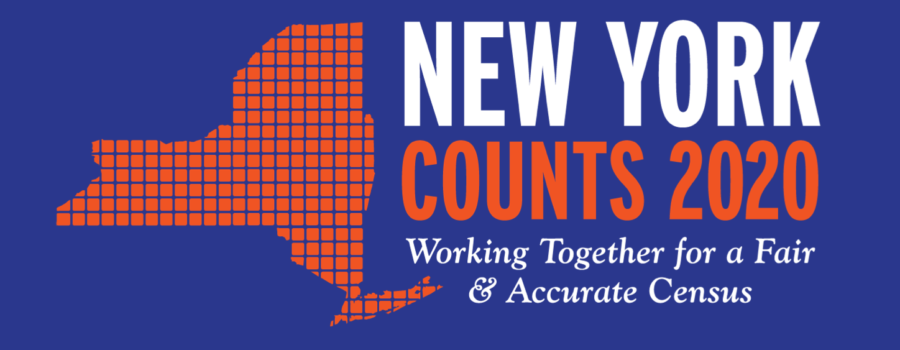CENSUS 2020
What Does Census Participation Mean?
It means:
- Getting classrooms that have the right resources and staffing for all the kids in the neighborhood.
- Adequate SNAP benefits for families that need it.
- A means upkeep that fits actual local use on roads and public transit.
- Telling the federal government how to divide the $675 billion in annual federal funds that go towards schools, roads, community centers, food assistance programs, WIC, SNAP, Medicare, hospitals, fire stations, police stations and other vital programs that we depend on every day. The Census data determines how many congressional representatives each state receives, so your Census response helps ensure that our communities are fully represented and that our neighborhoods have a louder voice
- The Census informs businesses about where to locate their offices and create more jobs.
New York City has one of the lowest response rates in the entire country, with a high number of communities that don’t respond. Those who tend not to respond, and therefore tend not to get counted include children, immigrants, impoverished individuals and families, non-homeowners, formerly incarcerated persons, and people of color-regardless of income. Fear, lack of understanding, lack of trust, apathy, physical barriers, digital barriers, and declining investment in Census education and outreach are all leading to the threat of our communities not being seen and counted in this upcoming Census, and that is why we need your help.
What is the Census?
- The Census is a set of 10 questions that takes 10 minutes to complete and will determine the next 10 years of your quality of life in NYC.
- It is a count of ALL adults and children living within the United States as of April 1st, 2020, regardless of citizenship status, age, or place of residence. The information they collect determines important local services and projects like where new roads, bridges, and schools will be built; and determines the number of federal, state, and local government representatives for communities.
What is asked on the Census?
- The number of people living in your home or apartment as of April 1, 2020.
- The name, sex, age, date of birth, and race of each person in the home.
- The relationship of each person to a central person in the home.
- No questions about citizenship status, social security or financial details will be asked.
How can I complete the Census?
- Online, by phone, or by mail sent from the Census Bureau. (Salem will be available to help individuals complete the census form online. Please call the office at 212-678-2700 to schedule an appointment.)
- The Census website and phone assisted response are available in English and 12 other languages including Arabic, Chinese, French, Haitian Creole, Japanese, Korean, Polish, Portuguese, Russian, Spanish, Tagalog, and Vietnamese, with additional language guides available online in 59 non-English languages.
- A Census worker will visit you in person if you don’t respond by the end of April.
Is the Census data safe and secure?
- The Census Bureau, the agency tasked with collecting your information, is not allowed to share any information you provide to federal, local, or state agencies in an individual or household identifiable way.
- Your information is protected by authentication and authorization methods that can only be accessed by the Census Bureau cybersecurity team and fully trained Census workers.
10 Census Myths
- Undocumented residents should not take the Census.
False: The Census is a count of all individuals living in the United States at the time regardless of citizenship status (including citizens, permanent residents, and the undocumented).
- The Census Bureau will give my information and address to Immigration Services.
False: Your responses to the 2020 Census are protected by law and used for statistical purposes only. All government agencies, including Immigration, are not permitted access to view the personal information you report to the Census Bureau.
- Of course, the President has the right to view my address and information through the Census Bureau. He’s the President!
False: In a democracy, the President is not all-powerful! By law, the President is not permitted access to view the personal information you report to the Census Bureau.
- The Census form will take too long to complete.
False: The Census form is easy and quick to fill out. It will ask you 10 basic questions that take approximately 10 minutes to complete.
- I am not required to list my children on the Census form. (My children will be counted in school, so I don’t have to count them)
False: Children will not be counted in school. You are required to list your children on the Census questionnaire to make sure they count.
- Refusing to take the Census is a great way to protest President Trump.
False: Refusing to take the Census means your community may be undercounted, underfunded, and underrepresented in government. When we don’t complete the Census, you tell the government you don’t count.
- The Census form will ask for asocial security number or financial information.
False: The Census questionnaire will never ask for your social security number or any financial information. The form will ask basic demographic information such as name, date of birth, ethnic background, and the names of each individual currently living in your household.
- I don’t have to answer every single question of the Census form.
False: You must fill out the Census form completely. If you do not fill out the entire questionnaire, Census workers are obligated to come to your address to get that information.
- The Census will not impact my day-to-day life. Completing a form is not going to fix the problems in my neighborhood.
False: Almost every part of your daily life is impacted by decisions made based on Census data, like planning public transit, job creation, school funding, maintenance, and essential local, state, and federal programs.
- It’s more important to vote in the 2020 election than it is to complete the 2020 Census.
False: Why not do both? A huge portion of the federal budget is allocated every year based on the Census, not by politicians. If you want to ensure your community gets its fair share, you need to make sure you and your household get counted.
APRIL 1ST!
April 1 Census Day – By this date, every household has received an invitation to participate in the Census.
- If we are undercounted in the Census, we are under-represented in Congress, diminishing our voices and depriving us of democracy and equality.
- A full, accurate count lays the foundation for a healthy democracy and communities where families thrive and flourish. By completing the Census and encouraging our communities to do so, we claim our rightful representation and fulfill our responsibility to our neighbors and future generations.
- It is important to be counted in the Census because it provides economic empowerment and political empowerment. To participate in our democracy is to be counted.

